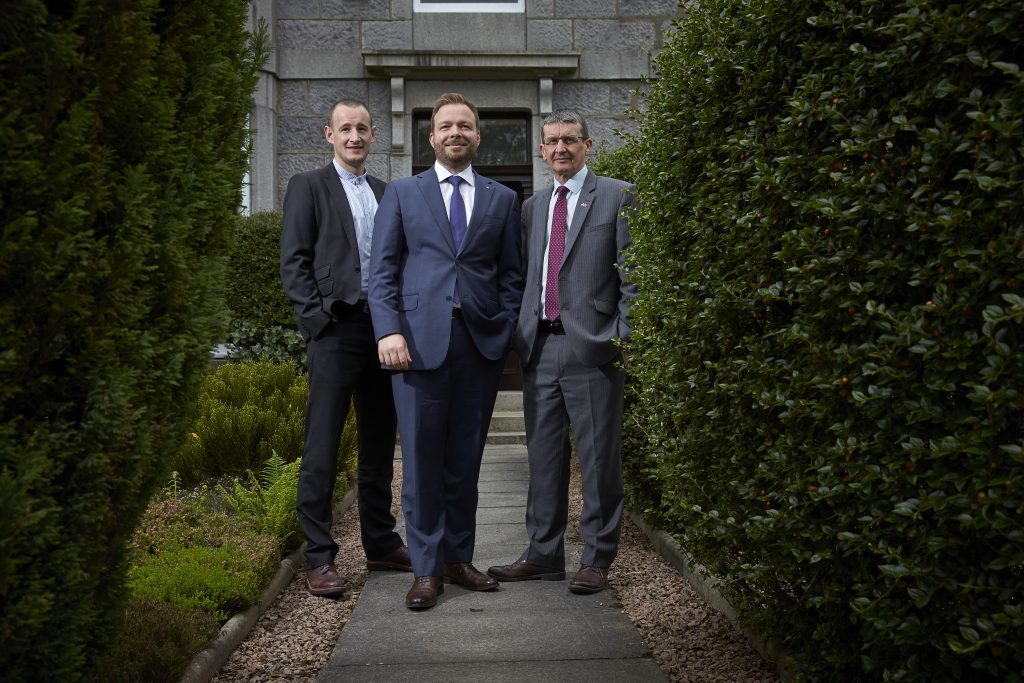
What do you get if you cross a former police detective, an engineer and a business developer?
No good punchline.
But put the three of them in a room together and you get a start-to-finish asset integrity management system capable of saving oil and gas companies millions of dollars.
That’s what Add Energy, Matrix Risk Control and STC Global claim to have produced after joining forces.
IQ2 [squared] is a collaborative project which offers companies a three-part solution to optimising oil and gas assets.
According to its founders, it was designed to fix the repetitive circle of the much maligned F-words: failed, found, and fixed.
The words sum up chronic problems, which plague offshore and onshore energy installations – from drive belts repeatedly failing, to human errors causing the same issues time and again.
Although the problem areas may be identified – after failure – the ‘fix’ often requires engineering changes, repair costs, budgetary approval and downtime.
This, according to the men in charge of IQ2, can often see a one-time failure develop into a chronic problem – a cycle they’re looking to break.
Operating on a vendor risk and reward scheme, the process starts with a free screening or health-check for the business.
This helps identify initial asset management issues and recurring training or technical problems that can be fixed to provide cost savings and safety improvements.
There is also a capped price model and standard fixed price available for potential clients, whether for one problem asset or to provide support across a portfolio.
Then in comes Matrix Risk Control’s investigative skills – providing rich and detailed raw data about the running of an asset.
The analysis is two-fold, partly coming from Add Energy’s team, and partly coming from a suite of tools to optimise the data from STC Global.
The end result pushes the asset operator to fix the issue – with IQ2 taking up a percentage of the value improvement gained from the fix.
Add Energy executive vice president Peter Adam explained the benefits.
He said: “We realised the potential of bringing the investigative piece together with the analytic piece.
“We, as Add Energy, are good at analysing and giving solutions in terms of optimising an asset.
“What we are not so good at is the investigative piece. That’s where Matrix Risk Control came in with those soft skills, digging into the quantitative part of it – anecdotal information from the offshore and onshore industry and seeing where that doesn’t quite tally up.
“What we bring to this is weeding out the opportunity and seeing the wood from the trees. That’s where we add a lot of value up front – getting to the real root cause using the investigative cause and the tool set.
“That gives us this more valuable combined service for clients.”
Adam added: “We’ve done this for a number of clients and saved them be it $30million across 16 improvement changes.
“With another client more recently there was $20million in Kazakhstan across 40 changes that needed to be made.
“It really depends on the asset, what the value is. But there can be significant improvements.
“The value of it can be amazing and it doesn’t involve cutting jobs or cutting corners. Together we all have done this, disparately, for a range of clients for years.
“This combined approach will leave no stone unturned.”
The collaboration will target key markets including the Middle East, the US and the North Sea.
Alan Smith, founding director of Matrix Risk Control is a former career police detective.
As head of major crime he had jurisdiction over the North Sea under the then Grampian Police force banner, exposing him to what he calls “all manner of major incident and tragedy”.
He said: “I identified that there was a gap in the ability of these organisation to carry out good quality basic investigations to understand why these incidents were occurring.
“That’s where we fit in with IQ2. The gathering of good quality data whether through interview or document research has to be as high-end as it can be to ensure you get that maximum output.
“It’s in our DNA to do these investigations.
“What we are trying to do here is get ahead of the curve – so there’s a proactive element.
Smith added: “The importance of the solution can’t be over stated. Recommendations can often be parked up due to budgetary reasons or they get lost in the smog of time. So surprise, surprise, there’s no improvement and after a time we get the call saying the same thing has happened again.
“We can’t have that frustration in IQ2 because that would reflect on the quality of our product.”
Mark Rushton, STC Global’s managing director, said that a one-stop asset integrity management system was needed due to the ‘new normal’ of lower oil prices, ageing assets and new entrants entering the market without established housekeeping rules like the old incumbents.
He said: “We’re focused on the chronic, systemic, repeatable failures and issues that ultimately make up the majority of the reasons why assets and business suffer multiple integrity failures.
“We have to be permanently efficient. There’s no suggestion that we’re going to return to the way it was before the downturn.”
Recommended for you
